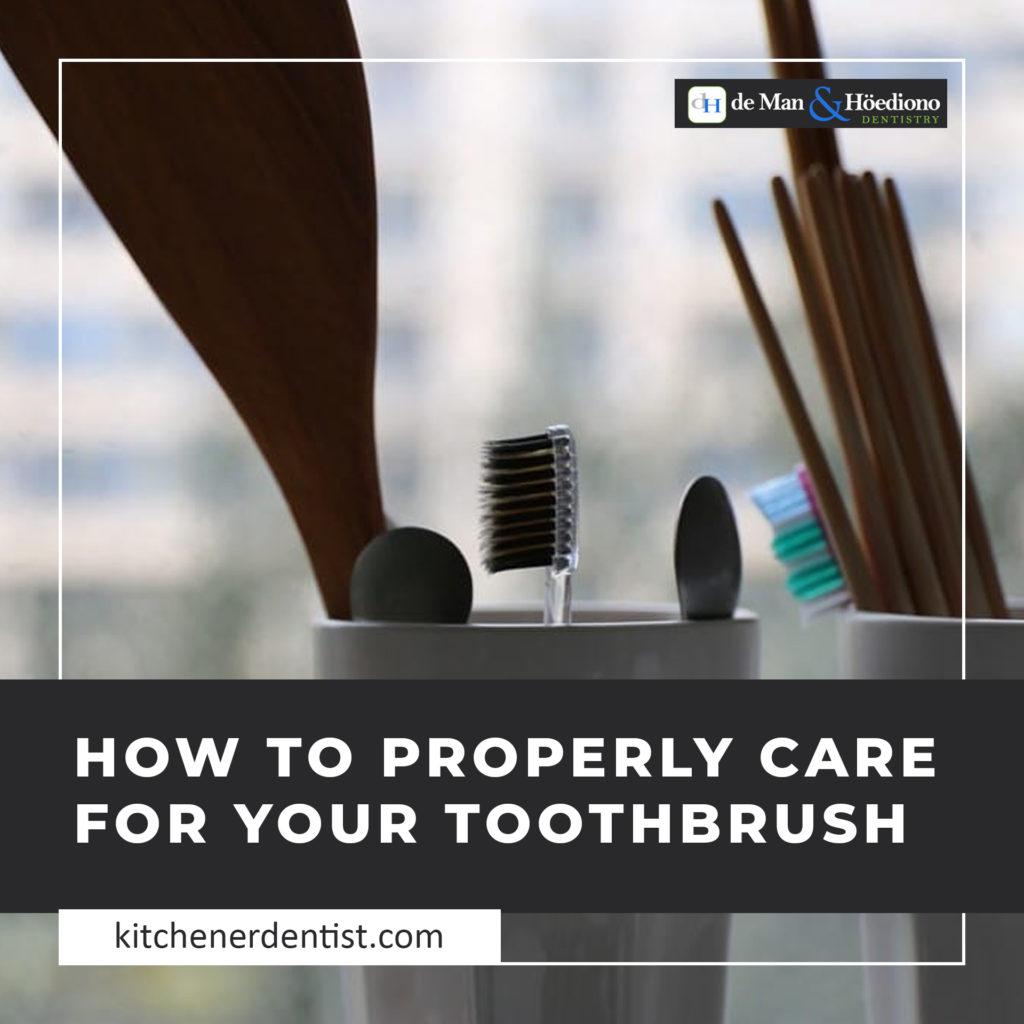Your toothbrush is your most important dental tool. If you care for it the right way, it will provide proper care in return. The good news is it doesn't require any special treatment. But, there are safe ways to clean and store it.
Here are some toothbrush care tips.
Rinse it well after use
After brushing your teeth, rinse your toothbrush thoroughly with tap water. Be sure there's no toothpaste or food debris left behind.
Store it upright
Let remaining water drain after every use by storing your brush upright.
Expose it to air
Avoid placing your toothbrush inside a drawer, cabinet, or any closed container. A wet toothbrush can attract and hold bacteria. When you travel keep your toothbrush in its own case to prevent it from getting contaminated. But take it out to air dry once you've reached your destination.
Keep brushes separate
Make sure toothbrushes don't touch to avoid transfer of bacteria.

Use your own brush
Sharing is caring, but never with a toothbrush. Don't borrow someone else's brush as this can compromise both your oral health and overall health. Sharing toothbrushes increases the risk for bacterial infections.
Avoid contact with cleaning materials
Store your it away from cleaning materials. Some cleaning agents may be toxic and you don't want them to come in contact with your brush.
Store it away from the toilet
Prevent your toothbrush from getting knocked into the toilet or sink. Keep it away from these areas. Germs can travel through the air. Even if your toothbrush is not located right beside your toilet or sink, there are still chances of spreading infection.
Get a new one every three months
A toothbrush in new condition will always do a better job than one that's rough and frayed. Replace it after three to four months or sooner if the bristles are frayed. Buy a toothbrush for everyone at home at the same time so you can replace them at once.
Consider a replacement if your immune system has weakened
It's not necessary to switch to a new brush after getting colds as our immune system will be working to keep our body protected. However, it may be beneficial to replace brushes more often if it is your immune system that's compromised.
Choose your case carefully
At home, you may want to invest in a toothbrush holder with several compartments. When you're on the go, cover your brush or store it in a plastic case. Even better if you'll find a case that is not airtight and allows circulation.
Here are some additional tips for electric toothbrushes.
- Replace the brush head. Replace the brush head as soon as you notice the bristles getting frayed or after three months, whichever comes first.
- Use up its battery. Rather than charging your electric toothbrush between use, let the battery run empty before charging it. This will help increase battery efficiency.
- Keep it covered when you travel. As you do with a manual toothbrush, be sure your electric toothbrush is properly covered to avoid it from getting damaged or contaminated.
- Store it out in the open when at home. When you're at home, leave it out rather than enclosing it in a case.
- Be cautious when buying sanitizers. Investing in toothbrush sanitizers isn't necessary but if you want to give it a try, read the labels carefully. Look for a seal from respected organizations and don't be fooled by products that over-promise.
- Never put your toothbrush in the dishwasher. Simply rinsing your toothbrush after use and letting it air dry completely is enough. Don't put your electric toothbrush in the dishwasher or microwave as it'll only get damaged.
These care tips will keep your toothbrush in great condition. If you need suggestions when choosing a toothpaste for your family, check out this post.
And if you have questions about your oral health, contact our team at